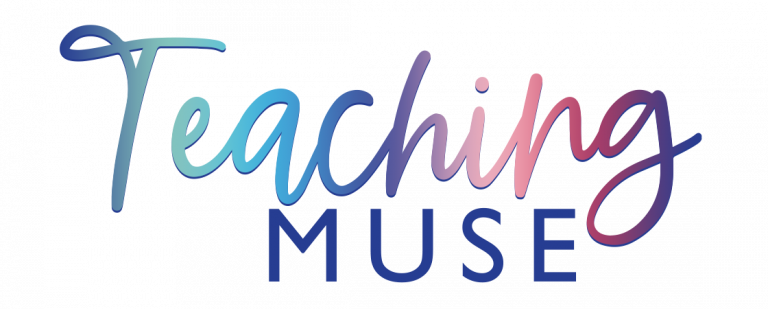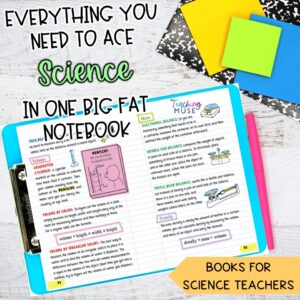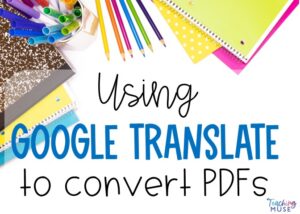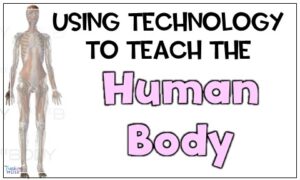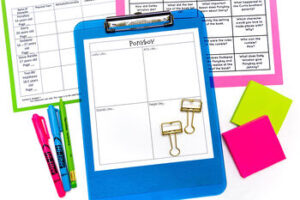
Whether you are relaxing poolside or teaching, you might wonder what good science resource books are for teachers? As an avid reader, I compiled a list of the best books for science teachers. This list should help those searching for new teaching strategies, or maybe just a good science read, to escape the teaching world for a while.
Science Resource Books for Teachers
Everything You Need to Ace Science in One Big Fat Notebook: The Complete Middle School Study Guide:
Are you a brand new science teacher? Maybe you are looking for a refresher on certain science topics? Either way, this big fat science notebook is first on my list because it follows the Next Generation Science Standards as it walks you through various subjects taught in the upper elementary – middle school science classroom.
What I like about this book is that it is written in a way that is very easy to understand. I have even seen some teachers use copies of this book with their students. I would love to have copies in my classroom to allow students to build on their background knowledge of different science topics. The language is that student-friendly.
Finally, if you use interactive science notebooks in your classroom, this book is developed to look like one. There are highlights, images, friendly fonts, and color. It is very visually pleasing, which makes the reader want to keep reading. At the end of each chapter, there are questions to assess learning. Answers are also included!
If you are a new science teacher, this is a great resource to have in your hands.
Picture-Perfect Science Lessons:
Infusing literacy into the science classroom helps students deepen their understanding of scientific concepts. That’s why this professional development book is perfect for science teachers.
Picture-Perfect Science Lessons is a book for a science teacher to integrate a collection of picture books into the classroom. Each chapter is devoted to a different science concept, such as chemical and physical changes, human impact on the environment, and force and motion. Two picture book options are included for each topic and worksheets, and 5 E lesson ideas. Furthermore, learn the 5 E method and give complete lessons on engaging, exploring, explaining, elaborating, and evaluating.
Are you teaching a lesson on observations and inferences? Bringing these lessons into an upper elementary classroom work wonders in building on student comprehension.
Ambitious Science Teaching:
Are you implementing the Next Generation Science Standards into your classroom but lack the knowledge of HOW to teach the standards effectively, then this book is a great tool to have.
This book is organized around four sets of core teaching practices:
- planning for engagement with big ideas;
- eliciting student thinking;
- supporting changes in students’ thinking; and
- drawing together evidence-based explanations.
Additionally, each teaching practice includes:
- tools and routines that teachers can use to support students’ participation,
- transcripts of actual student-teacher dialogue and
- descriptions of teachers’ thinking as it unfolds, and examples of student work.
Science-specific skills such as modeling and scientific argument are also covered.
Finally, this is a great book for teaching science because it covers all types of learners to include ideas and tools to use with learners from all different backgrounds and abilities.
Novels for Science Teachers
The Radium Girls: The Dark Story of America’s Shining Women by Kate Moore:
This historical nonfiction story of women dial painters in the 1920s will stay with you for a long time. Young women who were entering the workforce unknowingly using large amounts of poison, radium. These women were paid to put luminous paint on dials for watches and airplanes used in war efforts. Then years later, when these same women started to experience horrific effects from the radium, the companies turned their backs on the women, misinterpreted scientific information, and paid off doctors to slant their findings. It is a true story of how big business tries to interpret science at the expense of the worker.
As a science teacher, this book opened my eyes to look at the source of scientific information. Ultimately, it is also a reminder that some things are too good to be true. During this time, scientists first thought that radium was a cure for everything. Sadly, years later, the horrible effects of radium because well-known.
If you can use novels in the classroom, there is a young adult edition made especially for those aged 8-12. I plan to use this version as a read-aloud throughout the year with my students. It should lead to interesting classroom discussions about social justice and science ethics.
The Immortal Life of Henrietta Lacks:
If you are looking for a good book about science ethics, this one is it. Henrietta Lacks died from cervical cancer in 1951. Before her death, doctors – without her knowledge – took cells from her cervix to study. These cells took on a life of their own as they multiplied and multiplied. Henrietta Lacks’ cells are still being used today, now called HeLa cells, to help study the human body and how it reacts to certain things.
While this sounds like a beautiful contribution to science, keep in mind that Henrietta did not release her cells to science. Henrietta’s family did not give this approval. How was it fair that HeLa cells were being used worldwide, yet Lacks children couldn’t access medical help when sick? The multimillion-dollar industry selling human biological materials? Lacks family never saw a dime.
The Immortal Life of Henrietta Lacks is a fabulous story of scientific discovery and science ethics that every science teacher should read.
Here is a bonus read. While this is not a book specifically for science teachers, it is a book that will help build empathy for students from different backgrounds.
Free Lunch by Rex Ogle (Winner of the 2020 YALSA Excellence in Nonfiction Award):
Ever felt like you needed to get into the mind of a student but couldn’t? This autobiography lets you into the mind of a student, Rex Ogle, who grows up in poverty and experiences neglect and abuse.
It should be noted that there is strong inappropriate language. However, you could read this aloud to your class and omit the language. This book is eye-opening to those fortunate not to be raised in poverty, and it allows those in poverty to identify with the main character. From a teacher’s perspective, the author included how other teachers treated him, including treating him wrongly simply because he was poor.
Free Lunch is a quick read that will allow teachers to walk away with a better understanding of our students’ different backgrounds.
